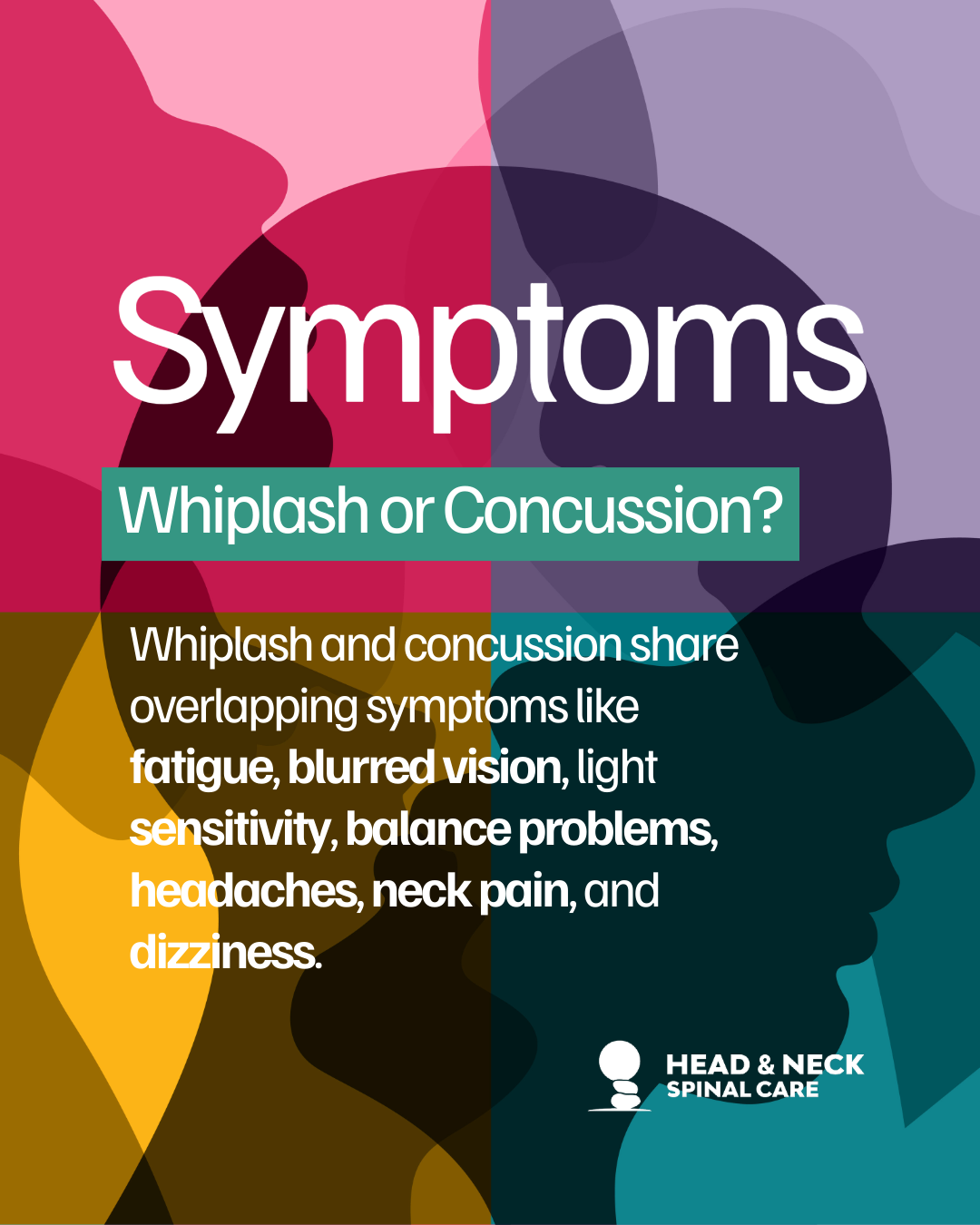
Can Whiplash Feel Like a Concussion? Understanding the Overlap Between Whiplash and Mild TBI
When we think of a concussion, we often imagine a direct blow to the head — like a sports injury or fall. But what many people don’t realize is that you don’t need to hit your head to experience symptoms of a concussion. In fact, a whiplash injury, often caused by rear-end car accidents or sudden jolts, can result in similar signs and symptoms to a mild traumatic brain injury (mTBI), such as a concussion.
What Happens During a Whiplash Injury?
Whiplash occurs when the head is suddenly jerked forward and backward, stretching the soft tissues of the neck beyond their normal range. This rapid movement can strain the muscles, ligaments, and joints of the upper cervical spine — the delicate area at the top of the neck that supports and protects the brainstem.
But here’s where it gets more interesting: the forces involved in whiplash don’t just affect the neck — they also affect the brain.
How Whiplash Can Mimic Concussion Symptoms
Even without a direct impact to the head, the whiplash injury can cause similar signs and symptoms to concussions like:
-
Headache
-
Dizziness or balance issues
-
Brain fog or difficulty concentrating
-
Sensitivity to light or sound
-
Fatigue
-
Neck pain and stiffness
-
Mood changes such as irritability or anxiety
Sound familiar? These are also hallmark symptoms of concussion or mild traumatic brain injury.
In many cases, patients are left confused — “Why do I feel like I hit my head when I never did?” The answer lies in how closely connected the neck and brain are, both structurally and neurologically.
The Role of the Upper Cervical Spine
The upper cervical spine (C1-C2) houses critical neurological pathways that affect posture, balance, and even blood flow to the brain. If these joints are misaligned due to whiplash trauma, they can disrupt:
-
Communication between the brain and body
-
Vestibular function (balance)
-
Cerebral blood flow
-
Neurological tone and reflexes
These disruptions may worsen or prolong post-concussive-like symptoms, even in the absence of a true brain injury on imaging.
Why It Matters
Many patients with whiplash are dismissed when their imaging comes back “normal,” or they’re treated solely for neck pain — but their cognitive or neurological complaints remain. Recognizing that whiplash can produce concussion-like symptoms is essential for proper care.
A Structural Approach to Healing
As an upper cervical chiropractor, I’ve seen firsthand how addressing misalignments in the craniocervical junction can help restore normal neurological function and relieve symptoms that don’t seem to go away after an accident. A gentle, precise correction to the upper neck can reduce tension on the nervous system, allowing the body to begin healing from within.